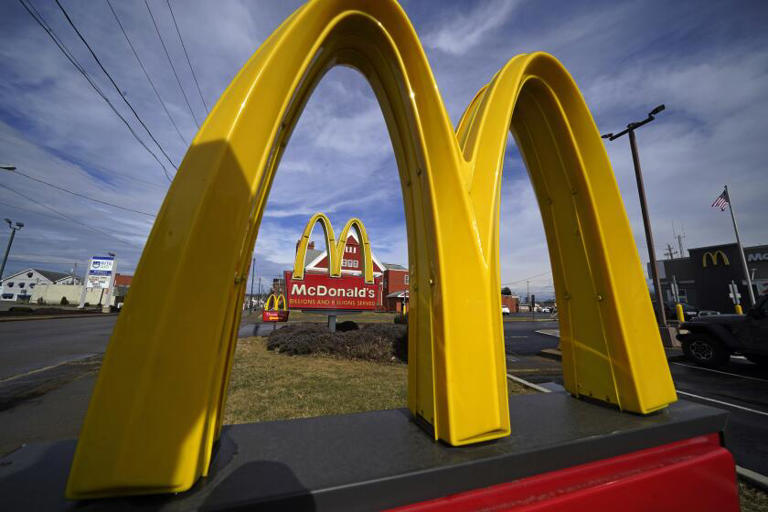Sales Decline and Market Challenges
For the first time since the final quarter of 2020, McDonald’s has reported a decline in global same-store sales, marking a significant shift in its performance. During the April-June 2024 period, the fast-food giant experienced a 1% decrease in sales for locations that have been open for at least a year. This decline represents the first drop in same-store sales since the pandemic’s peak, when the company faced significant disruptions due to widespread store closures and a dramatic reduction in customer foot traffic.
The current downturn in sales is largely attributed to broader economic conditions, particularly inflation. As inflation continues to strain consumer budgets, many individuals are opting for cheaper dining options or cutting back on eating out entirely. This shift has put pressure on McDonald’s, which has long been positioned as a leader in delivering value to its customers. McDonald’s Chairman, President, and CEO Chris Kempczinski acknowledged the shrinking gap between McDonald’s and its competitors in terms of perceived value. Despite its longstanding reputation, the company is grappling with increased competition and changing consumer expectations.
Regional Performance and Consumer Sentiment
McDonald’s performance varies significantly across different regions. In the U.S., the company has observed a decline in customer visits, though those who do come in are spending more per transaction due to recent price hikes. Kempczinski defended these price increases by highlighting that costs for essentials, including food, paper products, and labor, have surged by up to 40% in some markets over recent years. This rationale reflects the broader trend of rising operational costs affecting many businesses, particularly those in the food service industry.
In France and the Middle East, McDonald’s has faced challenges related to consumer sentiment and geopolitical issues. In these regions, boycotts have emerged due to perceptions that McDonald’s supports Israel in the ongoing conflict in Gaza, leading to reduced store traffic and negatively impacting sales. This regional unrest illustrates how geopolitical and social issues can have tangible effects on global business operations.
Similarly, in China, McDonald’s is contending with weak consumer sentiment, which has led to customers gravitating towards lower-priced competitors. This trend underscores the difficulty McDonald’s faces in maintaining its market share in an increasingly price-sensitive environment.
Strategic Responses and Future Outlook
To address the declining sales and enhance value perception, McDonald’s has introduced several strategic initiatives. A key move has been the launch of a $5 meal deal in U.S. restaurants starting June 25, 2024. Although this promotion was implemented late in the financial reporting period, it has shown promising results, with sales surpassing initial expectations. This initiative aims to attract lower-income consumers and draw them back into McDonald’s locations. According to U.S. President Joe Erlinger, 93% of McDonald’s franchisees have committed to continuing the promotion through August, reflecting its positive impact.
Internationally, similar meal deal promotions have been implemented in Germany and the United Kingdom, where they have been met with success. However, Kempczinski has emphasized that addressing the current market challenges requires more than just a few promotional items. The company needs to enhance its overall value proposition and strengthen its marketing efforts to better communicate these changes to consumers.
Additionally, McDonald’s is working on expanding its menu with new, value-oriented items. One such item is the Big Arch double burger, which is being tested in three international markets through the end of 2024. This new product is part of McDonald’s broader strategy to revitalize its menu offerings and better align with evolving consumer preferences.
For the second quarter of 2024, McDonald’s reported flat revenue of $6.5 billion, slightly below the $6.6 billion forecasted by analysts. Net income decreased by 12% to $2 billion, or $2.80 per share. When adjusted for one-time items such as restructuring charges, McDonald’s earnings per share were $2.97, falling short of the anticipated $3.07. This performance highlights the financial pressures facing the company, even as it implements strategic changes.
Investor Reaction and Market Sentiment
Despite the disappointing earnings report, investor sentiment remains relatively positive. On the day the earnings report was released, McDonald’s shares rose by 3.5% in morning trading. This increase reflects investor confidence in the company’s ability to navigate current challenges and execute its strategic initiatives effectively.
Overall, McDonald’s is undergoing a period of significant adjustment as it responds to declining same-store sales and evolving consumer behaviors. The company’s efforts to introduce value-oriented meal deals, expand its menu, and address rising operational costs are central to its strategy for regaining traction in a competitive and economically challenging environment. The outcomes of these strategies will be closely watched as McDonald’s seeks to restore its growth trajectory and maintain its position as a leading global fast-food brand.
